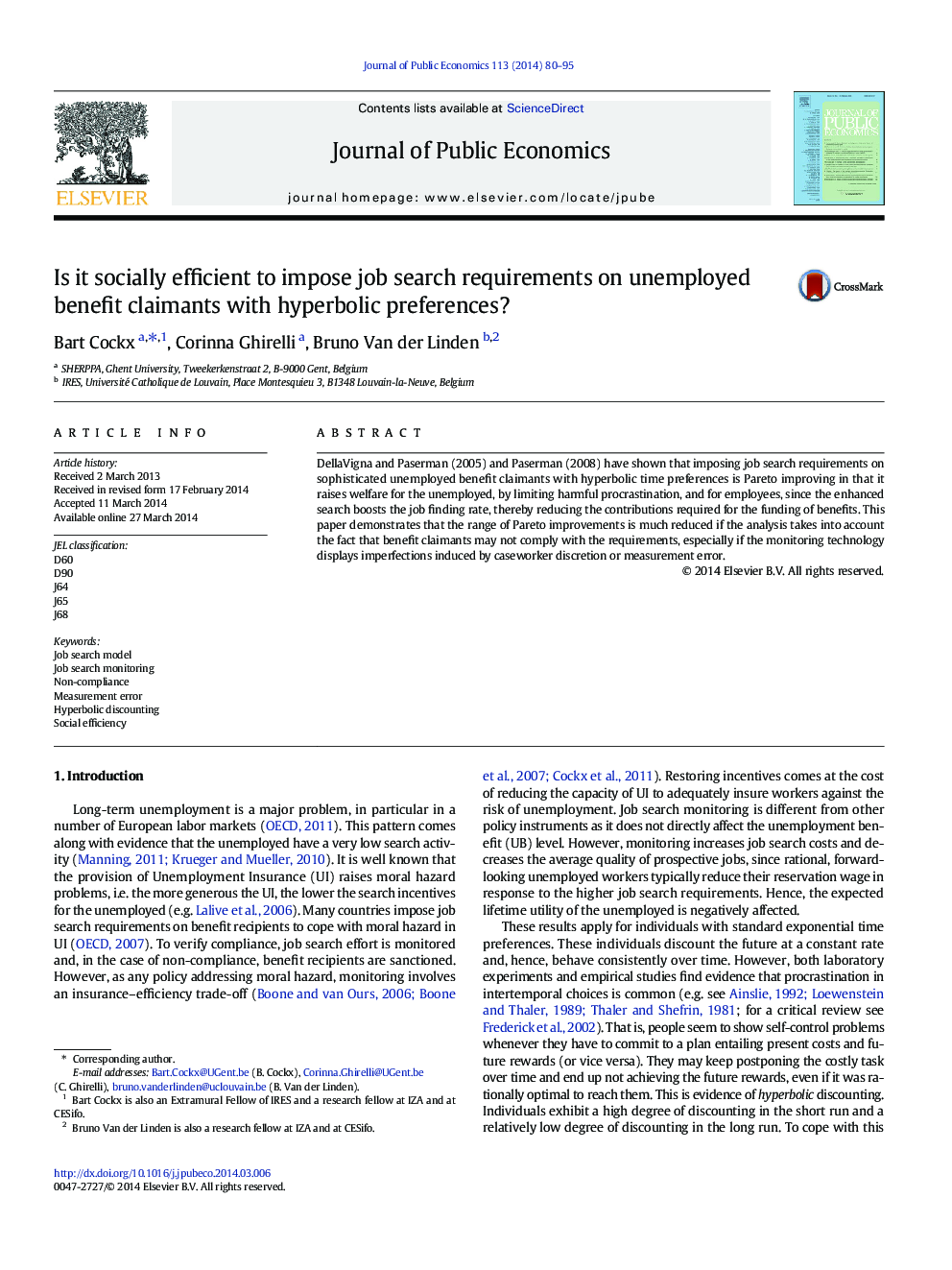| Article ID | Journal | Published Year | Pages | File Type |
|---|---|---|---|---|
| 7370376 | Journal of Public Economics | 2014 | 16 Pages |
Abstract
DellaVigna and Paserman (2005) and Paserman (2008) have shown that imposing job search requirements on sophisticated unemployed benefit claimants with hyperbolic time preferences is Pareto improving in that it raises welfare for the unemployed, by limiting harmful procrastination, and for employees, since the enhanced search boosts the job finding rate, thereby reducing the contributions required for the funding of benefits. This paper demonstrates that the range of Pareto improvements is much reduced if the analysis takes into account the fact that benefit claimants may not comply with the requirements, especially if the monitoring technology displays imperfections induced by caseworker discretion or measurement error.
Related Topics
Social Sciences and Humanities
Economics, Econometrics and Finance
Economics and Econometrics
Authors
Bart Cockx, Corinna Ghirelli, Bruno Van der Linden,
